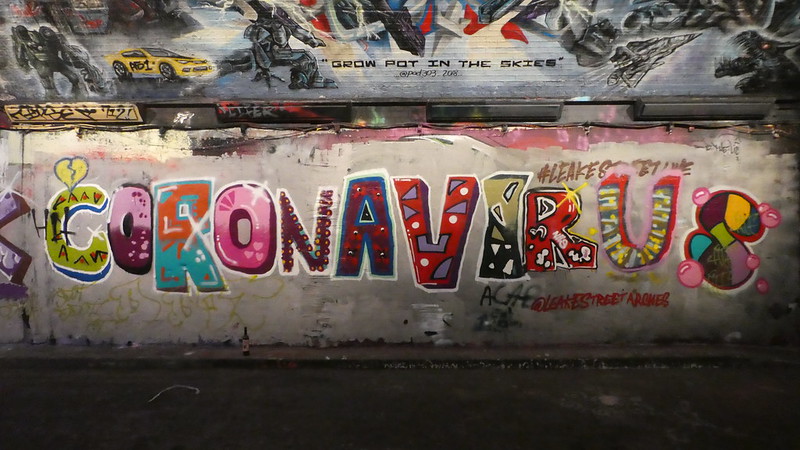“I drank too much cold water again,” my nanny sighed as she put a cup of tea in the microwave, her voice cracking. She has been nursing a cough and an irritated throat for the past two weeks and the arrival of the coronavirus outbreak in our corner of Queens, NY has highlighted the stark differences in how different people, many of whom have intertwined lives, are handling the outbreak.
For my nanny, who is Mexican, many illnesses have their root cause in temperature: weather that is too cold or wet is a breeding ground for sicknesses. Interestingly, my father, who is originally from India, subscribes to the same logic. I hesitantly went to visit him a few days ago, holding back panic as he insisted on visiting a particularly crowded grocery store in Jamaica, Queens.
“Papa, do you think we should go elsewhere–maybe somewhere that’s not so congested?” I looked around nervously, the Covid-19 infection/hospitalization statistic for his age group running through my head like an endless ticker.
“Nonsense!” my father announced, as he wet a finger with saliva to coax a static-y produce bag open, “Once the weather gets warmer, it will get better by itself.”
My father is the rare hypochondriac who isn’t also a germaphobe. Later that afternoon, he also made a not completely necessary trip to his doctor’s office, and when I called him in the evening, he reassured me that he was eating some extra-hot food that would help protect him. Garam khana sub kuch sai kardai tha hain, he said. Hot food makes everything better.
Notions about the culpability of temperature in fostering illness have a stronghold in many cultures, especially those cultures that hail from warm climates. There, cold weather is viewed as being a major culprit. In my neighborhood in Jackson Heights, where many immigrant families live, it is common to see a child bundled up in layers of jackets, hats, and scarves, even when the weather might be sunny and 55 degrees. On numerous occasions, neighbors have stopped to admonish me for letting my runny-nosed children run down the street without a scarf or a hat.
But these folks are not alone in holding this belief: Early on, President Trump had first promoted the idea that spring temperatures would solve the nuisance of coronavirus.
This is a classic case of how misconceptions can cloud our understanding of everyday phenomena such as disease spread. It also underscores the common fallacy that correlation equals causation. Just because it rains every time you wear a certain pair of socks does not mean that the socks are causing the rain. In the same sense, some illnesses do decline in warmer weather but it may be due to numerous causes, not particularly because of rising temperatures. The relationship between illness and etiology of sickness is not cut and dry. Some Nordic cultures, for example, often embrace cold weather, leaving babies out to nap in the cold.
Unfortunately, much is not known about coronavirus and temperature. Preliminary research shows that coronavirus is not as prone to being influenced by warmer temperatures as influenza, meaning that its spread may not be mitigated as we see warmer days. Enterprising users on reddit have attempted to citizen science their way into trying to understand the relationship of coronavirus cases to humidity and temperature. In my own classrooms, my students have engaged in digital collaboration projects focused on understanding the coronavirus and one student has chosen to focus on the relationship between the virus and the climate. Maps of the outbreak seem to indicate that numbers are low in countries close to the equator–for now. Almost everyone understands that the full picture isn’t known yet and statements by public officials have been opaque at best. Until then, individuals might need to follow their own ideas about reducing their chances of getting sick–even if that means bundling up and drinking hot fluids—as long as their misconceptions don’t lead to risky behavior.
Mubina Schroeder, Ph.D, runs the Citizen/Scientist Project at Molloy College’s Cognition and Learning, where she is an Associate Professor
Photo Credit




